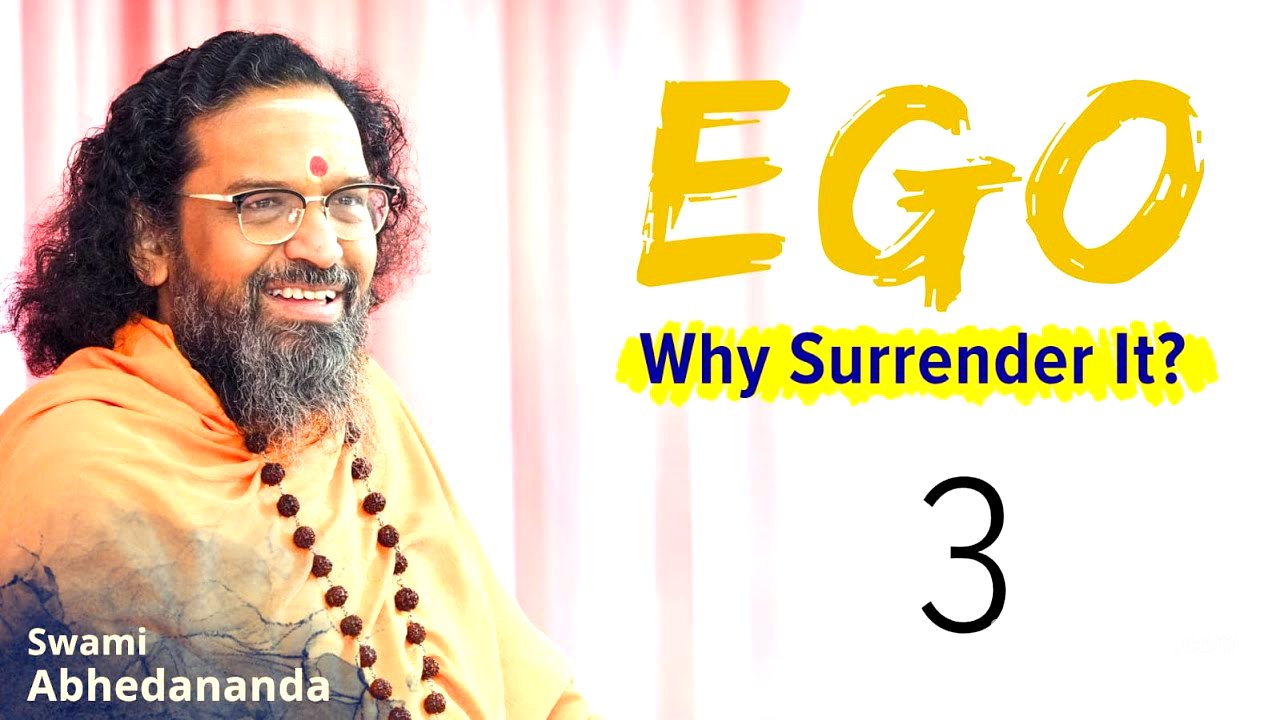TLDR;
This YouTube video by Chinmaya Mission South Africa features a discourse on merging individual consciousness with the divine, drawing from Hindu scriptures and the Ramayana. It emphasizes surrendering personal desires, knowledge, and power to align with God's will, using examples like Sudama, Lakshmana, and Hanuman to illustrate selfless devotion. The talk also explores the nature of ego, the importance of a guru's guidance, and the concept of selfless service, advocating for a life dedicated to God's purpose rather than personal enjoyment.
- Merging individual consciousness with the divine is key to overcoming sorrow.
- Surrendering personal desires, knowledge, and power to align with God's will.
- The role of a guru in guiding individuals towards divine realization.
Opening Prayers and Salutations [0:06]
The video begins with a series of devotional chants and salutations, invoking deities such as Ganesha, Saraswati, and Hanuman, and paying homage to spiritual teachers and the divine couple, Sita and Rama. These opening prayers set a spiritual tone for the discourse.
Understanding Sorrow and the Divine Mind [9:27]
The speaker addresses the common feeling that life's difficulties are caused by external factors, but asserts that sorrow arises from a lack of understanding of one's own life and God. He explains that the universe is God's body, and just as the mind animates the human body, God's mind sustains the universe. Sorrow emerges when there is a conflict between our mind and God's mind, and the key to overcoming this is to align our thoughts and desires with the divine will.
The Nature of Arrogance and Merging with God [13:37]
The discussion centers on the attributes of God, such as desire, knowledge, and power, and how these compare to human attributes. The speaker explains that arrogance arises when an individual's happiness, knowledge, and status contradict those of God. The ultimate spiritual practice (sadhana) involves merging one's happiness, knowledge, and power with God's, exemplified by Sudama, who remained content despite his poverty because he accepted it as God's will.
Examples of Surrender: Kaikeyi, Ravana, and Lakshmana [18:12]
The speaker contrasts those who could not merge their happiness with God's, such as Kaikeyi and Ravana, with those who did, like Lakshmana. Kaikeyi's actions caused Rama's exile, indicating her inability to consider Rama's well-being. Ravana's abduction of Sita showed a similar disregard for Rama's pain. In contrast, Lakshmana sacrificed his own happiness to serve Rama, embodying selfless devotion.
Bharat's Devotion and God's Will [23:58]
The story of Bharat meeting Rama in Chitrakoot illustrates the conflict between personal desire and divine will. Bharat initially urges Rama to return to Ayodhya, but ultimately accepts Rama's decision to honor his father's vow. Bharat's willingness to relinquish his own desires and act as a trustee, placing Rama's sandals on the throne, exemplifies surrendering to God's will.
Desires, Opinions, and the Illusion of Control [27:28]
The discourse emphasizes that our troubles stem from the clash between God's greatness and our own desires, opinions, and comforts. The speaker stresses the importance of accepting circumstances as God's will, even when they contradict our personal preferences. He uses the example of Hanuman, whose every wish aligned with Rama's, to illustrate perfect devotion.
Devaki, Yashoda, and the Nature of Divine Love [31:37]
The speaker explores the difficult paths of Devaki and Yashoda, highlighting the sacrifices and silences they endured in their roles as mothers of Krishna. He emphasizes that true devotion may require accepting suffering and separation, and that God's love may not always manifest in the ways we expect.
Ego, External Circumstances, and the Importance of Surrender [32:49]
The discussion shifts to the concept of ego and how external circumstances can shatter our opinions and happiness. The speaker advocates for surrendering to God, giving up the illusion of control, and recognizing that the entire universe belongs to God. He stresses that true enjoyment comes from recognizing God as the instrumental and material cause of all existence.
The Story of Sita's Swayamvara: A Test of Surrender [33:39]
The narrative transitions to the Ramayana, specifically the episode of Sita's Swayamvara, where kings and princes attempt to lift and string Shiva's bow. The speaker highlights the significance of surrendering to God's will and the futility of actions motivated by ego. He emphasizes that true power comes from aligning oneself with the divine.
Janak's Vow and the People's Desire [43:35]
The speaker discusses King Janak's vow that only the one who could string Shiva's bow would marry Sita, and how this created a sense of inertia and expectation among the people. He underscores the importance of recognizing God's role in uniting Shakti (Sita) with Shaktimaan (Rama), and the need to surrender to the divine plan.
The Power of Surrender and the Nature of Mahatmas [45:56]
The discourse emphasizes that surrender involves aligning one's happiness and power with God's, leading to an influx of divine power. The speaker cites examples of Mahatmas (great souls) who possess extraordinary abilities due to their complete surrender. He also stresses the importance of offering one's actions, speech, mind, and intellect to God.
Daily Life as an Offering to God [49:17]
The speaker encourages listeners to view their daily activities as offerings to God, whether it's performing household chores, engaging in acts of service, or simply writing "Ram Ram." He stresses that every aspect of life can be an opportunity to connect with the divine and surrender one's ego.
Ego-Driven Actions vs. God's Will [52:15]
The discussion contrasts actions motivated by ego with those aligned with God's will. The speaker explains that ego-driven actions are characterized by anxiety and haste, while actions performed in surrender are guided by divine inspiration. He uses the example of kings failing to lift Shiva's bow to illustrate the futility of ego-driven efforts.
Laxman's Laughter and the Nature of Vairagya [57:48]
The speaker interprets Laxman's laughter during the Swayamvara as the laughter of Vairagya (dispassion), mocking those who claim ownership over relationships and possessions. He emphasizes that true detachment comes from recognizing God as the ultimate source of love and support.
Janak's Despair and Laxman's Intervention [1:00:31]
The narrative returns to the Swayamvara, where King Janak expresses his despair at the lack of warriors capable of stringing Shiva's bow. The speaker highlights Laxman's anger at Janak's words, interpreting it as a defense of God's presence and power.
Laxman's Rebuke and the Importance of Recognizing Divine Love [1:03:57]
Laxman rebukes Janak for his despair, reminding him of the divine love and presence that already exist. The speaker emphasizes that God's love is always present, even when it's not immediately apparent, and that true devotion involves recognizing and appreciating this love.
The Guru's Role and the Auspicious Moment [1:15:56]
The discourse shifts to the role of the Guru in guiding individuals towards divine realization. The speaker explains that the Guru awakens God within us and inspires us to break free from our ego and attachments. He emphasizes that the auspicious moment is when God rises to break the ego.
Ram's Bowing and the Nature of Surrender [1:24:35]
The speaker describes how Ram, upon hearing his Guru's words, bows down in reverence, symbolizing complete surrender. He emphasizes that true surrender involves relinquishing one's own mind and will to the Guru, and recognizing God as the motivator of all deeds.
Ram's Appearance and the Divine Energy [1:27:16]
The speaker describes Ram's transformed appearance as he steps onto the stage, radiating divine energy and captivating all those present. He emphasizes the importance of seeking blessings and inspiration from elders, and recognizing the divine presence behind all actions.
The Importance of Guru's Guidance [1:29:50]
The video concludes by reiterating the importance of the Guru's guidance in navigating life's challenges and breaking free from ego and attachments. It emphasizes that true devotion involves surrendering to God's will and recognizing the divine presence in all aspects of life.









